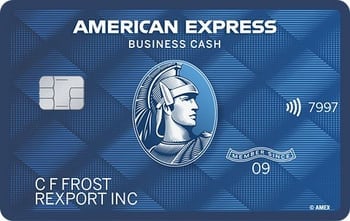Can You Get a Business Credit Card Without a Business?
If you're doing something on your own (not as an employee) with the intention of making money, you're a business.

Many, or all, of the products featured on this page are from our advertising partners who compensate us when you take certain actions on our website or click to take an action on their website. However, this does not influence our evaluations. Our opinions are our own. Here is a list of our partners and here's how we make money.
You don’t need a formal business to get a business credit card. You don’t need business income either. A side hustle or hobby that generates extra cash is enough to qualify for most business credit cards.
There are other requirements, though. For instance, you'll typically need good or excellent credit (a FICO score of 690 or higher) and some personal income.
✔️ Got your answer?
Now that you know you can get a business card without a business, find the right option for you. Here are our best business credit cards.
Who can get a business credit card?
Anyone who earns money on their own, outside of their employer, can get a business credit card. That means business credit cards are available to everyone from CEOs to rideshare drivers and resellers on Facebook Marketplace — provided you meet minimum credit score requirements and other qualifications.
Examples of businesses (that you might not consider a business) include:
- Pet sitting independently or through sites like Rover or Wag.
- Re-selling furniture, clothing or household items on sites like Poshmark, Craigslist or Facebook Marketplace.
- Babysitting.
- Tutoring.
- Occasional freelancing.
- Giving music lessons.
- Driving for rideshare companies and delivery services.
How do you apply for a business credit card without a business?
Business credit card requirements are pretty straightforward, whether you have a business or not. You'll need to provide personal details such as your Social Security number, date of birth and total annual income.
You’ll also need to supply the following information about your business:
- Business name: Use your name if you don’t have a formal business name.
- Business structure: Select sole proprietor if you don’t have employees and haven’t filed paperwork to establish a legal business structure.
- Federal tax ID: If you have an Employer Identification Number (EIN), use that; otherwise use your Social Security number.
- Business description: Select the industry and business type that best describes your company or side hustle.
- Business revenue and expenses. It’s OK to report none if you don’t have any.
- Number of employees. If it’s just you, write zero.
- Time in business. This can be an estimate of how long you’ve been earning income from your business.
This information doesn’t necessarily impact whether or not you’re approved for a business credit card. That’s mostly based on your credit score and income. But it may affect your initial credit limit.
Don’t make up a business name if you haven’t registered one with your city or state. Don’t inflate business revenue if you don’t have any yet. It’s perfectly reasonable to put $0 on your application. Lots of people open business credit cards for new businesses, before they earn revenue.
What are the benefits of a business credit card?
Small-business credit cards have a lot going for them. Perks include big sign-up bonuses, high rewards for business spending, expense-tracking tools and the ability to get employee cards.
If rewards are your top priority, here are NerdWallet’s top picks for different types:
Beyond that, business credit cards can be used to build your business credit history. Maintaining a separate credit card for business expenses can also simplify business tax filing. And, yes, even casual entrepreneurs need to file business tax returns.
Can you get a business credit card with no business income?
Yes, you can be approved for a business credit card without any business income.
Approval for a business credit card is typically based on your personal credit and financial history rather than your business financials. That may be good news for new businesses and sometimes side hustlers with no discernible business income.
Business credit cards do require a personal guarantee, though. That means the individual cardholder — not the business — is ultimately responsible for any unpaid balances.
There are some business credit cards that don’t have a personal guarantee. However, these will almost always require that your business be incorporated and meet specific revenue requirements.
Can you use a business credit card for personal expenses?
No law prohibits using a business credit card for personal use. The same is true for using a consumer card for business expenses.
Most issuers do specify in the terms and conditions that business cards should only be used for business purposes. But if you happen to put personal charges on your business card, you’re unlikely to face any consequences — though it’s possible the card issuer could eventually close your account.
In general, though, we recommend using business cards only for business expenses and personal cards only for personal expenses. That will make it easier to identify deductible business expenses at tax time.
Businesses that have limited liability protections, including LLCs, also need to keep their business and personal finances separate. Mixing the two together can jeopardize those safeguards.
Article sources
NerdWallet writers are subject matter authorities who use primary,
trustworthy sources to inform their work, including peer-reviewed
studies, government websites, academic research and interviews with
industry experts. All content is fact-checked for accuracy, timeliness
and relevance. You can learn more about NerdWallet's high
standards for journalism by reading our
editorial guidelines.







